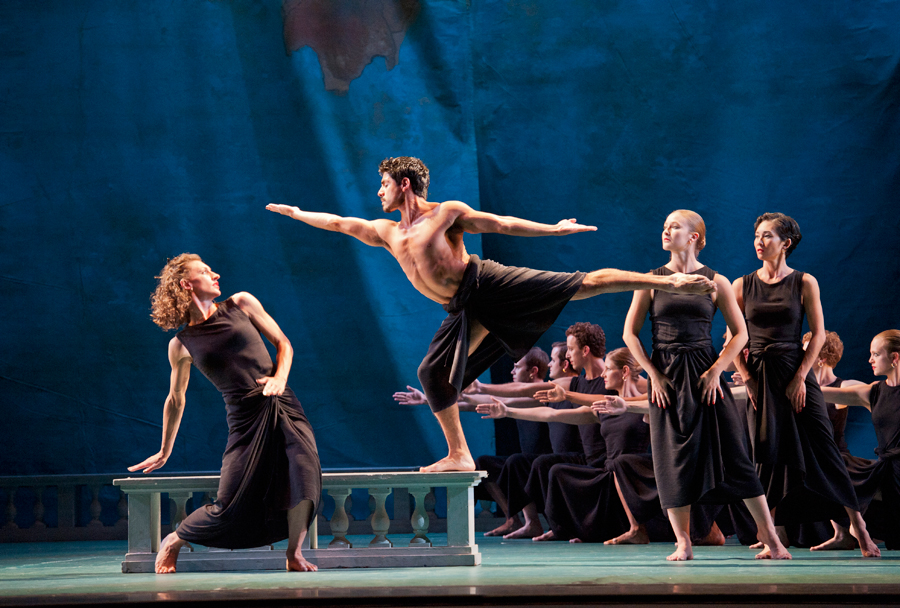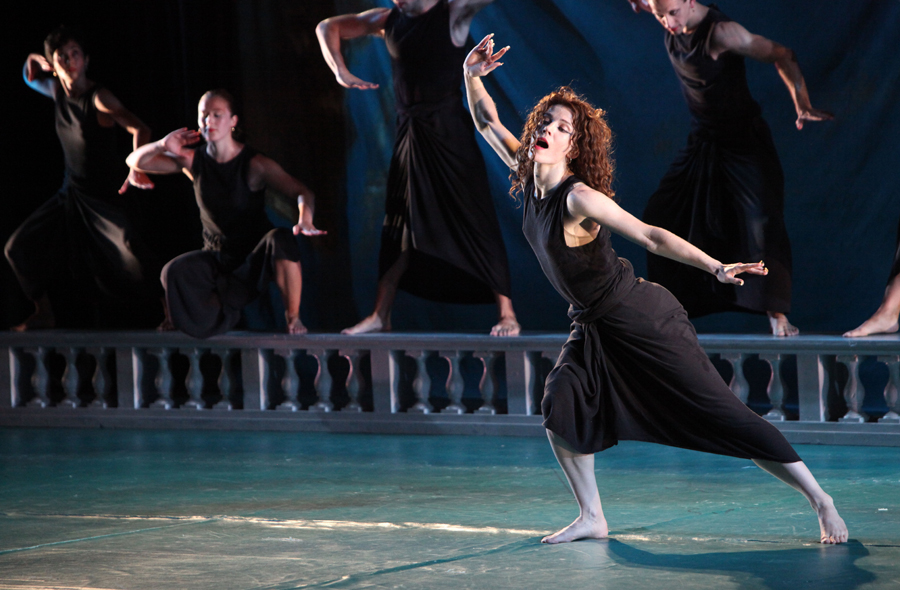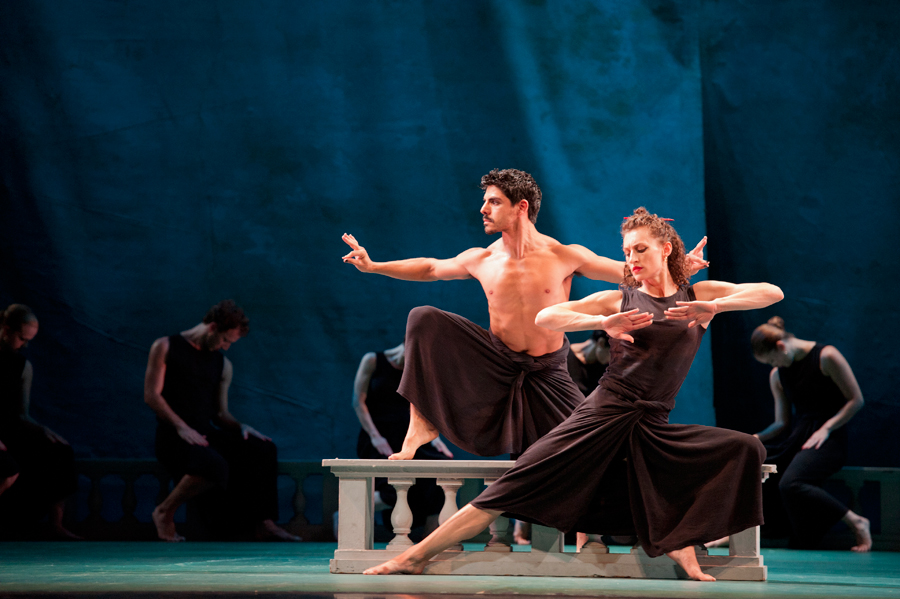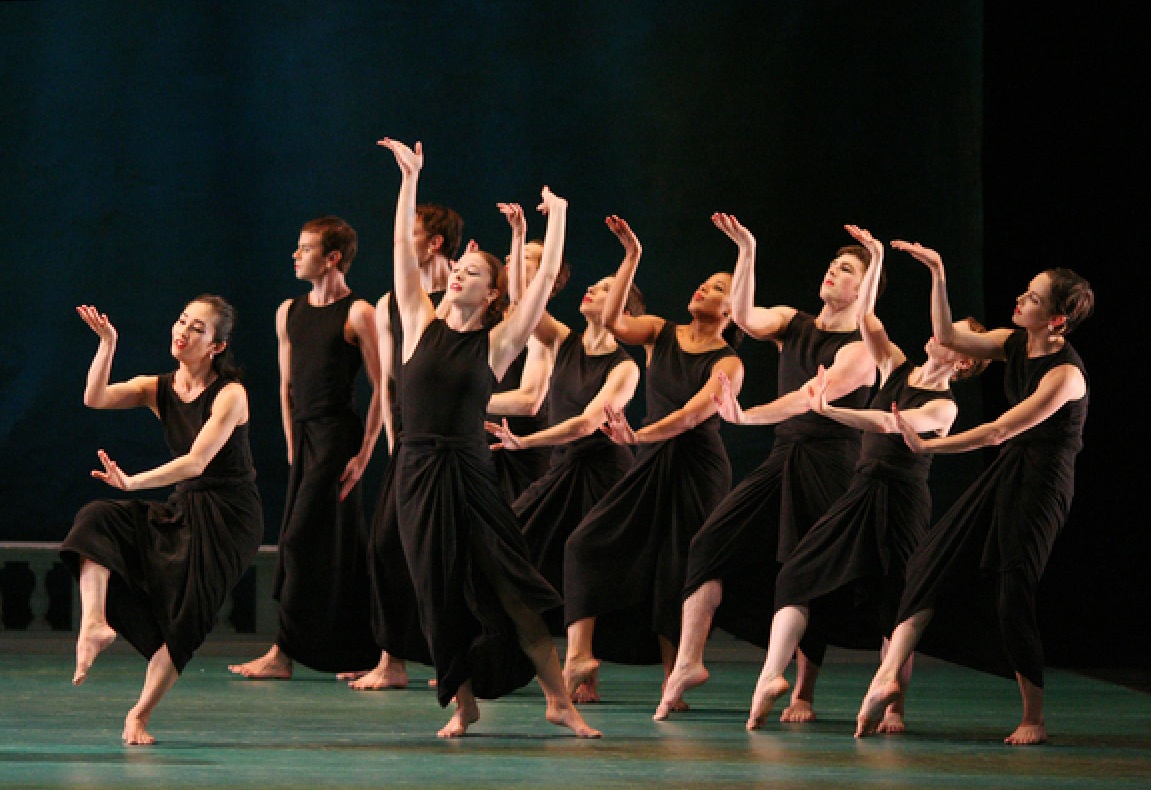
Media Gallery
- images
- videos













Details List
| Choreography | Mark Morris |
| Music | Henry Purcell - Dido and Aeneas |
| Libretto | |
| Scenic Design | Robert Bordo |
| Costume Design | Christine Van Loon |
| Lighting Design | James F. Ingalls |
| Instrumentation | orchestra, chorus, 4 vocal soloists |
| Runtime | 55 minutes |
Details
A DANCED OPERA’S ORIGIN
Dido and Aeneas is a dance adaptation of Henry Purcell’s 1689 eponymous opera, based on Virgil’s famous tale of Aeneas’ affair with Dido, the Queen of Carthage on his way to founding Rome. As Director of Dance at the Théâtre Royal de la Monnaie in Brussels, Belgium, Mark Morris presented this opera with singers stationed in the pit and with the stage reserved exclusively for dancing. The unique combination of baroque vocal music and modern dance underscored Morris’ gift for storytelling and his remarkable ability to shape music and words into movements.
THE ROLE
Morris cast himself in the dual role of Dido and the evil Sorceress that plots the Queen’s demise. This role is one of his most acclaimed. “As he said at the time,” biographer Joan Acocella wrote in 1993, “he wanted to expand the expressiveness of male dancers; he wanted to give them what women had. But, artistically, the more important fact was that the gender switch—plus the combining of the heroine and villainess roles—shot the show into a mythic territory, beyond realism and beyond conventional morals.” Morris continued to perform the role, opposite Guillermo Resto as Aeneas, until 2000.
THE WORK ON FILM
In the summer of 1995, a filmed version of Morris’ production directed by Barbara Willis Sweete was produced by Rhombus Media. Sweete, who had previously worked with MMDG on the Emmy award winning film, Falling Down Stairs, recreated the Dido and Aeneas set on a sound stage in Toronto, Canada and filmed the work without the constraints of a proscenium stage. The film captured Mark Morris in his critically acclaimed role, brought the long famed dance sequences to motion picture and television audiences, and is still available on DVD today.
THE WORK RETURNS TO THE STAGE
When Mark Morris retired the role at the turn of the century, many believed that the only way to re-experience the work was through the film – that no other dancer could replace him. Nonetheless, as part of the 25th anniversary celebration of the Mark Morris Dance Group, the company remounted the work. This time, all dancers were new to the piece except for two who remained from the 1989 premiere cast. Dido and the Sorceress were cast as two separate roles and performed by Amber Star Merkens and Bradon McDonald respectively. Today, the roles Dido and the Sorceress are again performed by one dancer.
“Gone is the Asian-theatre mystery of the opera, the idea that the Queen could be a man, an icon, a principle. She is now a pretty girl from Oregon, and that changes the show radically, restores it to realism. It is impossible not to regret this, but in doing it Morris saved “Dido.” The way to lose a dance—and thousands of dances have been lost thereby—is to stop performing it. The way to preserve it is to recast it and recoach it and put it back onstage.” -Joan Acocella
MARK MORRIS AS CONDUCTOR
Mark Morris has been conducting performances of Dido and Aeneas since 2008, when he first conducted the MMDG Music Ensemble and the George Mason University singers as part of an engagement in in Fairfax, Virginia. Since then, he has conducted performances in Urbana, Illinois (Pacific Symphony Orchestra and the University of Illinois Chamber Singers); in Boston, Massachusetts (Orchestra and Chorus of Emmanuel Music); and in the company’s Russian debut in Moscow (MMDG Music Ensemble and Trinity Choir). Recent performances conducted by Morris at Cal Performances, Berkeley (Philharmonia Baroque Orchestra and Chorale), and at the Mostly Mozart Festival at Lincoln Center, New York (MMDG Music Ensemble and Trinity Choir) featured mezzo-soprano Stephanie Blythe singing the roles of Dido and Sorceress.
Press Quotes
-
"A tour de force of late 20th century artistic storytelling...that smashes and rewrites stylistic boundaries. When everyone joined together — musicians, singers, dancers — it proved, yet again, that you didn't need a movie screen to make a blockbuster."
Los Angeles Times -
"...a production involving all aspects of theater brought together by an artist of imagination and vision."
Ballet Review -
"...mastery and artistic perfection one only dreams about experiencing."
Times Union -
"Mr. Morris has created a dazzling interpretation of Purcell's superlative work. The more closely you follow it, the more packed its movement is with meanings."
New York Times -
"...an hour of dancing that is, at almost every moment, both comical and gravely beautiful."
Daily News NY

